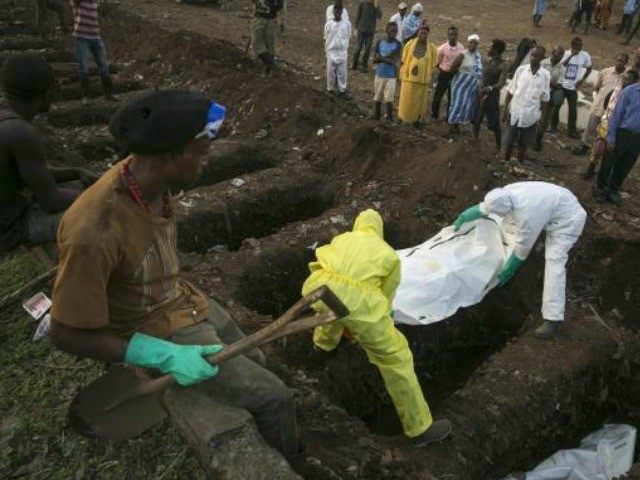EMBO Molecular Medicine released a study that claims insectivorous free-tailed bats sparked the Ebola outbreak in West Africa. A two-year-old boy from Meliandou, Guinea, played in a hollowed tree filled with these bats and became the first victim of Ebola.
The group traveled to Meliandou, which contains 31 houses and “surrounded by farmland and few larger trees.” Residents told the team children played in the tree, but it caught fire on March 24, 2014. This caused a “rain of bats” and “a large number of bats were collected for consumption.” They also said children often hunt the bats “and grill them over small fires.” But the scientists believe the boy’s “exposure to the bats and their droppings” led to the outbreak. The institute’s Dr. Leendertz said it is rare to contract the disease this way.
“That is also obvious when you think about how many tonnes of bat meat is consumed every year,” he said. “If more bats carried the virus, we would see outbreaks all the time.”
Although the study found consumption of bush meat did not start they outbreak, they did not urge the nations to end the ban on bush meat. The Hill said the study claimed bush meat was not to blame for the article, when in fact, it did. Bush meat is any animal hunted in Africa, Asia, and South America. The boy did not contract Ebola through food, but he did contract it through bush meat.
The study did not divulge details on how other victims spread the disease. Sierra Leone, Liberia, and Guinea, the three African nations hardest hit by Ebola, issued warnings and banned bush meat as a way to curb the Ebola outbreak. Many Africans expressed disgust at changing their daily diet.
“Life is not easy here in the village,” said Sâa Fela Léno from Guinea. “They [authorities and aid groups] want to ban our traditions that we have observed for generations. Animal husbandry is not widespread here because bush meat is easily available. Banning bush meat means a new way of life, which is unrealistic.”
The Food and Agriculture Organization of the United Nations Chief Veterinary Officer Juan Lubroth issued a warning to the people of Africa.
“We are not suggesting that people stop hunting altogether, which isn’t realistic,” he said. “But communities need clear advice on the need not to touch dead animals or to sell or eat the meat of any animal that they find already dead. They should also avoid hunting animals that are sick or behaving strangely, as this is another red flag.”
Some people who accepted the fact that Ebola is in bush meat still might eat it. Food is not always accessible like it is in America. Parents provide any food they can for the family.
“If you’re out in sub-Saharan Africa and you need food for your family, there aren’t many options to get protein,” said Daniel Bausch, an associate professor of tropical medicine at Tulane University.
Lubroth suggested the world should introduce livestock to Africa to discourage people from hunting bush meat.
“We recognize [sic] the importance that bush meat has to quality nutrition that you may not get from only crop-based diets,” he said. “We do not say that you should stop wild meat … but can we replace the need to go to the forest and hunt wildlife with having a source of livestock and livelihood that can be safer?”
“Can we have a more development agenda where we could have poultry production, sheep, goats, pigs… so that there is no undue encroachment into the forest for hunting?”

COMMENTS
Please let us know if you're having issues with commenting.